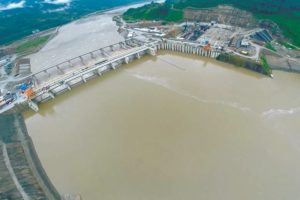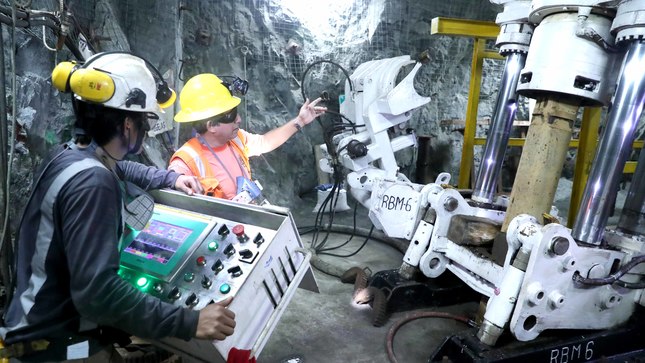From 2000 to 2021, China has caused community conflicts in Latin America, producing negative impacts on the environment by conducting extractive, energy, and infrastructure projects, the nongovernmental organizations Latinoamérica Sustentable (LAS, in Spanish) of Ecuador and the Asociación Ambiente y Sociedad of Colombia reported.
Although China established guidelines to finance works abroad that address social and environmental matters, these are not mandatory, according to Ambiente y Sociedad’s September 2020 report Chinese Infrastructure Cooperation in Latin America and the Caribbean. Chinese ventures, some in the Amazon basin, are progressing in areas of great biodiversity, sometimes in legally protected areas and in territories with ethnic communities, the report added.
In Latin America, there are more than 980 environmental conflicts due to energy, mining, transportation, and communication developments, most of which have Chinese support, the Global Atlas of Environmental Justice said on its website.

Some examples
The Ecuadorian government is investigating the Coca Codo Sinclair hydroelectric plant — built by the Chinese company Sinohydro Corporation Limited built — due to structural failures and cracks in its turbines and generators, which can cause a partial or total collapse of the dam, the BBC reported. In addition, Sinohydro did not acquire an environmental license for the project, Ambiente y Sociedad added.
In December 2020, the Waorani indigenous community in Ecuador sued PetroOriental, a subsidiary of China National Petroleum, for burning gas when extracting oil, threatening the ecological balance and the population’s health, Diálogo Chino, a London-based investigative journalism news site, reported.
The Amazon Waterway, which Sinohydro developed in Loreto and Ucayali, Peru, covers 14 indigenous communities and four protected natural areas and “puts at risk the life of the rivers, which is enormously important for these peoples’ culture and economies,” Ambiente y Sociedad said.
The Nicaraguan Interoceanic Canal, awarded to the Ortega-Wang Jing Concession, is now suspended “due to the sizeable, affected populations and due to its secret negotiation, without public consultation, without consent from indigenous peoples, without bidding, without authorization from municipalities and in less than seven workdays. The communities protested on several occasions to oppose the project,” Sociedad y Ambiente reported.
“The [Chinese] state-owned and private businesses often exploit pervasive corruption in the region to undermine fair contracting practices and circumvent environmental compliance,” U.S. Navy Admiral Craig S. Faller, commander of U.S. Southern Command, told the U.S.-based magazine Politico on August 12. “A common tactic they use is to provide lucrative payoffs to local officials in exchange for favorable deals.”
These companies “bribe the regional commissioners, make them sign blank documents, and simulate meetings to obtain the necessary documentation for their projects,” Pedro Uc Be, spokesman for the Assembly of Defenders of the Maya Múuch Xíinbal territory, reported on the Yucatan-based website El CEO.
The conflicts represent the need for Chinese corporations and banks to implement socio-environmental protections in the financing, design, construction, and operation of ventures in Latin America, IPS Noticias reported.
Beijing’s growing commercial ties with Latin America and the Caribbean accelerate environmental deterioration due to increased pollution, the depletion of non-renewable resources, and the promotion of the unsustainable use of renewable resources, the news site América Latina en Movimiento indicated. “The region has a third of the world’s water, a fifth of its forests, and large oil and mineral reserves,” the news outlet added.









